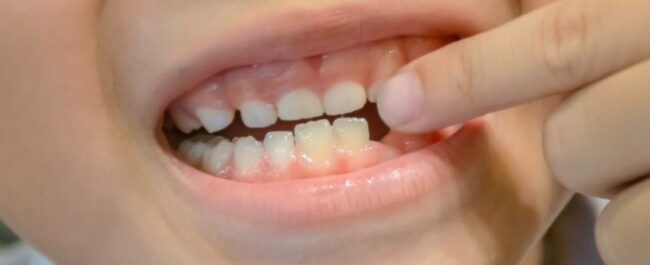What if my Child’s Baby Teeth Aren’t Falling Out?
Any parent knows that all children reach milestones like crawling, walking and talking at different ages, and losing their baby teeth is no different. While there is a pretty large window during which losing baby teeth is normal, it’s easy to worry if the process seems to be taking too long and teeth aren’t falling out when you think they should. However, there are steps you can take to stay ahead of any potential issues with your child’s baby teeth.
At Reflections Dental Oakville, we often see children who need baby teeth pulled to prevent problems down the road with incoming adult teeth, or prior to applying braces. Yes, it’s normal!
When is a normal time to lose baby teeth?
Most children will lose their baby teeth around 6 years old, however it’s not uncommon for it to happen anytime between 5 and 7 years. By the time a child is 8 years old, they’ve most likely lost their 4 front teeth on both the bottom and the top.
Between the ages of 8 and 10 years, it’s normal for kids to not lose any teeth at all. Around 10 years they’ll likely start to lose the rest of their baby teeth, with the average child has losing all of their baby teeth by the time they’ve turned 13 years old. Girls will often lose all of their baby teeth before boys, however, sometimes as early as 11 years old.
Why baby teeth may not fall out
There are 3 main reasons why baby teeth may not fall out on their own, leading to a need for intervention by a dentist.
1. Teeth aren’t growing directly underneath the baby teeth
Sometimes nicknamed ‘shark teeth’ because of the growth pattern of a shark’s teeth, this condition can be significant barrier in the loss of baby teeth in kids. The most common reason a baby tooth will fall out is because the permanent tooth underneath it is pushing up against the roots, causing the root to dissolve. If the permanent tooth grows in front of or behind the baby tooth, the baby tooth roots may not be triggered to dissolve.
2. Baby teeth are overcrowded
If baby teeth are too crowded in the mouth the permanent teeth may not be able to push through the gum correctly in order to prompt the roots of baby teeth to dissolve and the tooth to fall out.
3. The permanent tooth hasn’t developed
Although a more uncommon reason for baby teeth to not fall out on schedule, a lack of development by the permanent tooth can be a factor for some kids.
What to do if baby teeth aren’t falling out
If you think that your child’s baby teeth may not be falling out when they should be, there are a few things that you can do to get in front of any possible issues.
Check whether the baby teeth are loose or not – If the baby tooth is loose, it is a good sign that it is getting close to falling out on its own. Encourage your child to wiggle it as much as they can. If it doesn’t seem to be any closer to falling out over the course of a couple weeks, you can contact your dentist to check it out. If baby teeth aren’t loose at all and it seems like they’ve passed the average time frame for falling out, it might be time to contact your dentist for a check up.
Take a look inside their mouth – Look for any signs that teeth may be trying to break through in front of or behind baby teeth. This can be an indication that their permanent teeth aren’t lined up properly and won’t be able to push baby teeth out of their gums. If this is the case, book an appointment with your dentist so that they can evaluate your child’s mouth and determine if more focused measures need to be explored.
Get your dentist’s advice
While you may be concerned about your child’s dental health when it comes to their baby teeth falling out in time, it’s important not to monitor. Your dentist will guide you on whether some teeth may need to be pulled or if x-rays are required. Visiting your dentist regularly can help you stay on top of any potential issues as their teeth develop.


